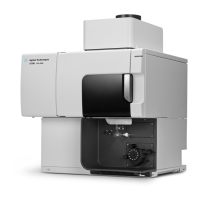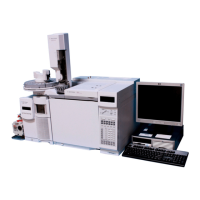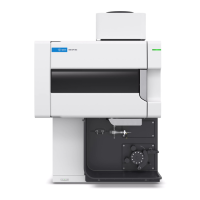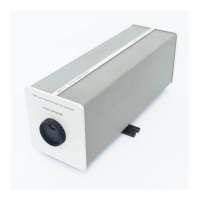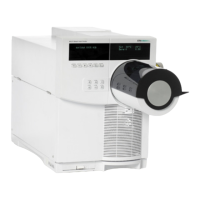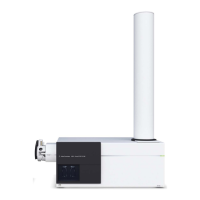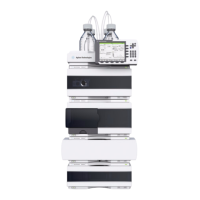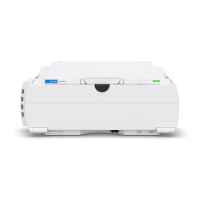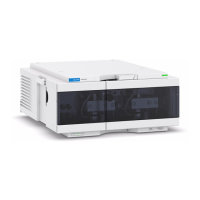164 Agilent Restricted Agilent 5110/5100 ICP-OES Service Manual
5 Troubleshooting
Failing Precision (Relative Standard Deviation)
Failing Precision (Relative Standard Deviation)
Return to step 13
Also indicated by a noisy signal.
Section Contents:
Identifying the Problem 164
Precision Failure Analysis Table 165
Precision - Fault Finding Diagnostics 165
V-Groove Nebulizer 167
Concentric Glass Nebulizer 167
Torch 167
Contamination in Spraychamber 167
Pump/Pump Tubing 168
Instrument Calibration 168
Running Aqueous Analysis after Non-Aqueous Analysis 168
Partially Soluble Salts 168
High Salt Content 169
Identifying the Problem
Precision is a measure of signal repeatability over multiple replicates (typically 10 replicates for
instrument performance test) and expressed as %RSD. A single flyer (high or low reading) can
cause this test to fail.
If poor precision (high relative standard deviations) is observed the first step is to determine if it
is being caused by drift (for example, steady increase or decrease of replicate signals), noise or
a flyer. To check on possible signal drift or noise, use the time scan facility to monitor the
analytical signal (Refer Chapter 4 – Developing Mn Method).
Monitor replicates and check for flyers (especially the first reading). If this reading is low, it
suggests the uptake delay time is too short and needs to be increased.
In order to understand the failure mode run an “Instrument Performance” test from the “Tests”
tab to validate the instrument (Refer Chapter 6). Check results:
If tests pass it suggests the problem may be related to the customer’s method (application) and
may not be a fault of the instrument.
If the test fails, then rerun the test with a known good Seaspray Nebulizer and Cyclonic
spraychamber to eliminate this as a possible cause.
Failing Precision test will verify a problem exists. Check which Wavelengths are failing and by
how much. Compare to installation or past IQ numbers. The table below will give some direction
as to failure mode and possible solution.
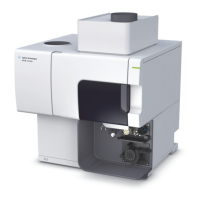
